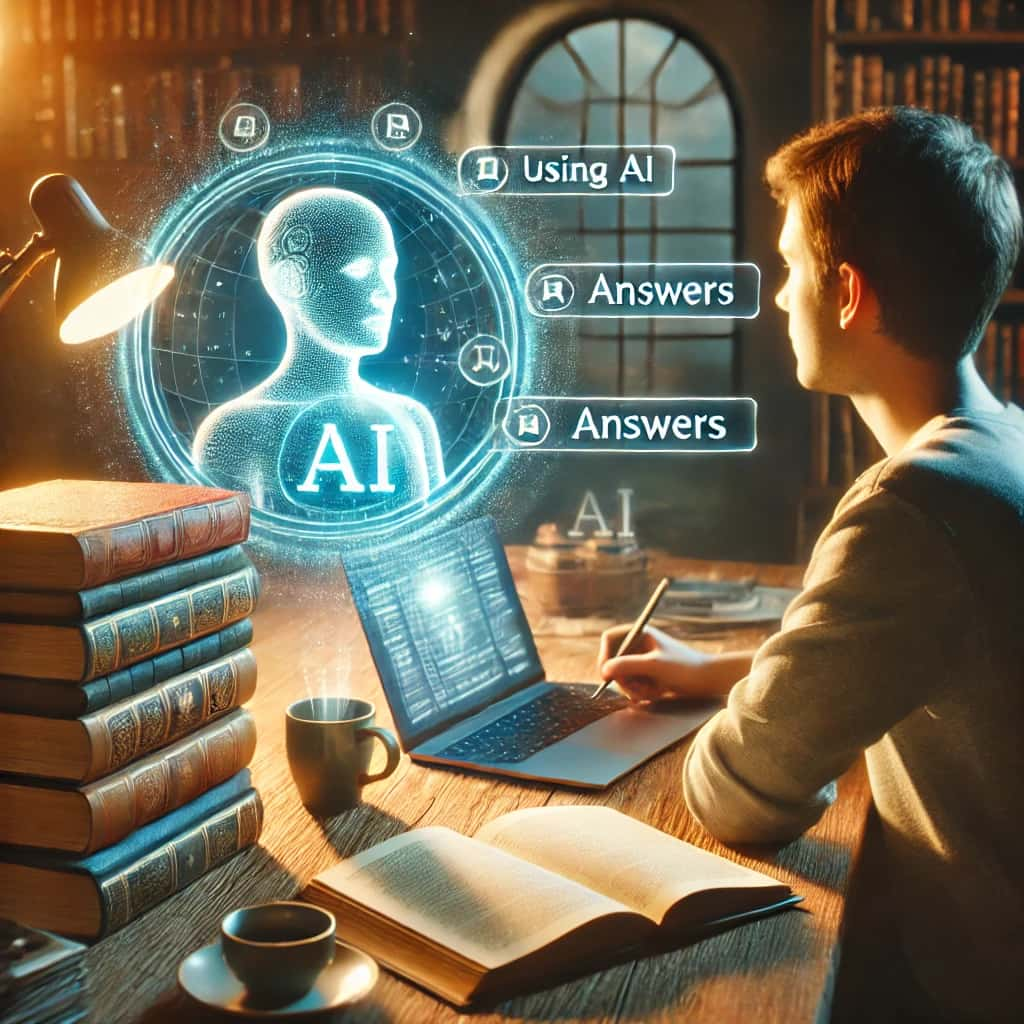Artificial intelligence (AI) has become an integral part of our daily lives. From those apps on your phone that somehow know what you’re about to type to programs that whip up essays or draw funky art in seconds—it’s kinda wild when you think about it.
Amazing? Definitely. But, yeah, it’s not all smooth sailing. AI may appear efficient and flawless at first glance, but it has its share of complexities and challenges.
Let’s get one thing clear: AI is more like a fancy Swiss Army knife than some magical solution to all your problems. Used the right way, it can save the day. Handled poorly, though? It’s trouble waiting to happen. Anyway, let’s explore both the advantages and potential pitfalls of using AI.

Why AI Is a Bit of a Head-Scratcher
OK, so here’s the deal. AI has come a ridiculously long way. Like, we’ve gone from clunky experiments with robot mice finding their way through mazes to advanced systems like ChatGPT, which can spit out stories, help with homework, or just chat with you about your favorite movie.
That’s cool and all, but, yeah, there’s another side to it that isn’t all that great.
The Persistent Problem of Bias in AI
Here’s the thing: AI doesn’t just magically know stuff. It picks up patterns from what it’s been trained on. And, well, if that training data has any kind of bias? Guess what—it’s going to pass that right along.
For instance, let’s say there’s an AI program grading essays, and it’s been fed biased examples. Students could get unfair scores based on stuff that has nothing to do with their actual work. Kinda makes you wonder who’s keeping tabs on this stuff, right?
Relying Too Much on the Easy Way Out
This one’s tricky. AI can do so much that it’s super tempting to just let it take the wheel. But there’s a catch. Lean on it too much, and you might find yourself losing those creative muscles or forgetting how to solve problems the old-fashioned way.
The dependence on it is comparable to over reliance on GPS which may have negative effect on your very own navigation skills.
Cheating Made, Uh, Way Too Simple
Let’s not pretend students aren’t using AI to cut corners. Tools like ChatGPT can write whole essays or spit out answers to test questions in no time flat. Sure, there are detectors that try to catch AI-generated stuff, but they’re not exactly foolproof. It’s like a never-ending cat-and-mouse game.
And When AI Goes, You Know, a Bit Off the Rails
Alright, so while AI is pretty clever, it’s not perfect. Far from it, actually. There are times when it can create more problems than it solves.
Getting It Completely Wrong
AI has this habit of sounding super confident even when it’s flat-out wrong. For instance, you ask it a question, and it gives you an answer that seems legit—except it’s totally off-base. Picture relying on that for, say, a research project or something serious. Yeah, not great.
Losing That Human Touch
OK, so this one’s a bit sad. When people start relying too much on AI when it comes to something like students, they miss out on the typical interactions with a real person. This can be over time and it could make them feel like they’re disconnected and not that excited about learning.
The Whole “Robots Taking Jobs” Thing
People have been worrying for ages that machines will take over human jobs, and honestly? It’s not just sci-fi anymore. If a company can get an AI system to handle tasks faster and cheaper, why wouldn’t they?
But, hey, that doesn’t mean we’re totally doomed—just that we’ve got to figure out how to team up with AI instead of getting left behind.

Flipping the Script: How AI Can Actually Be Super Useful
Alright, enough with the doom and gloom. Let’s talk about the good stuff—because, yeah, AI can be seriously handy if you use it the right way.
Learning That Actually Fits You
This is where AI shines. Let’s say math isn’t really your thing, and you need a bit more practice. AI tools can whip up custom exercises just for you. Or, if you’re the kind of person who learns better with pictures, it can show you charts or diagrams instead of walls of text. It’s like having a tutor that adapts to whatever you need.
Giving Teachers a Little Breathing Room
Let’s not forget teachers—they’ve got enough on their plates. For example, AI can come up with quiz questions or even draw up lesson plans for them. Basically, it’s like having an extra set of hands without needing to hire someone new.
Answers When You’re Stuck
Ever been, like, totally lost on a homework problem with no one around to help? AI’s got your back. You type in a question, and it walks you through the steps to figure it out. Sure, it’s not the same as a real tutor, but it’s pretty decent in a pinch.
| Aspect |
Advantages |
Limitations |
|---|---|---|
| Education and Learning | – Personalized approach (adapts materials to the student). – Quick assistance with tasks and questions. |
– Reduced motivation for traditional learning methods. – Possible lack of human interaction. |
| Daily Tasks | – Automates routine processes. – Accelerates work (text generation, idea creation). |
– Overdependence may lead to reduced creativity and analytical skills. |
| Accuracy and Reliability | – Quickly provides information. – Can analyze large datasets. |
– Possible errors in responses. – Data distortion due to training bias. |
| Workforce Impact | – Simplifies workflows. – Increases productivity. |
– Replacement of some professions. – Need for adaptation to new work conditions. |
| Ethical Concerns | – Potential for transparent systems (with proper development). | – Issues with bias and lack of transparency in decision-making. |
So, How Do We Keep AI From Running the Show?
The trick here is finding that sweet spot—using AI when it makes sense but not letting it take over everything.
Don’t Take It at Face Value
Seriously, always double-check what AI tells you. It’s more like a helpful buddy who might get things wrong sometimes, not some kind of all-knowing genius.
Keep Your Skills Sharp
Sure, let AI handle some stuff, but don’t let it make you lazy. Keep working on your own creativity and critical thinking because, let’s face it, no machine can fully replace what humans bring to the table.
Push for Systems That Are Actually Fair
If AI is going to stick around, it’s got to work for everyone. That means calling out biased systems and making sure there’s some transparency about how decisions are being made.
AI’s Here to Stay—Let’s Make It Work for Us
So, at the end of the day, AI is like that overly enthusiastic friend who’s great in some ways but also kinda annoying sometimes. It’s got the potential to help us learn faster, tackle problems differently, and just make life a bit smoother. But, yeah, it’s not perfect, and we’ve got to keep an eye on it.
The best move? Use AI as a sidekick, not the star of the show. Lean on it when you need to, but don’t let it take the wheel entirely. And, hey, if we all stay thoughtful about how we use it, AI can actually be a pretty decent teammate.




